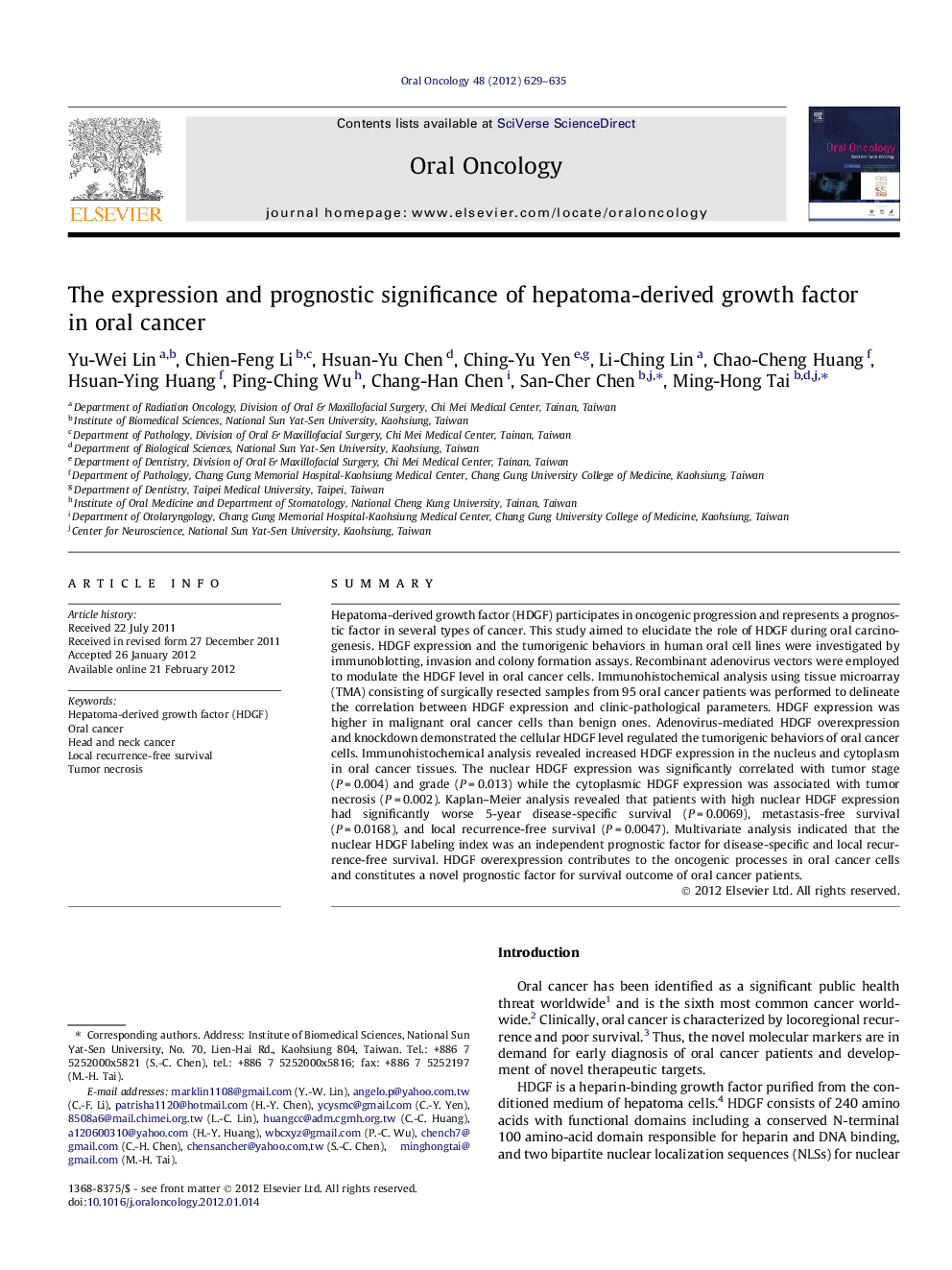| Article ID | Journal | Published Year | Pages | File Type |
|---|---|---|---|---|
| 6055368 | Oral Oncology | 2012 | 7 Pages |
Abstract
Hepatoma-derived growth factor (HDGF) participates in oncogenic progression and represents a prognostic factor in several types of cancer. This study aimed to elucidate the role of HDGF during oral carcinogenesis. HDGF expression and the tumorigenic behaviors in human oral cell lines were investigated by immunoblotting, invasion and colony formation assays. Recombinant adenovirus vectors were employed to modulate the HDGF level in oral cancer cells. Immunohistochemical analysis using tissue microarray (TMA) consisting of surgically resected samples from 95 oral cancer patients was performed to delineate the correlation between HDGF expression and clinic-pathological parameters. HDGF expression was higher in malignant oral cancer cells than benign ones. Adenovirus-mediated HDGF overexpression and knockdown demonstrated the cellular HDGF level regulated the tumorigenic behaviors of oral cancer cells. Immunohistochemical analysis revealed increased HDGF expression in the nucleus and cytoplasm in oral cancer tissues. The nuclear HDGF expression was significantly correlated with tumor stage (PÂ =Â 0.004) and grade (PÂ =Â 0.013) while the cytoplasmic HDGF expression was associated with tumor necrosis (PÂ =Â 0.002). Kaplan-Meier analysis revealed that patients with high nuclear HDGF expression had significantly worse 5-year disease-specific survival (PÂ =Â 0.0069), metastasis-free survival (PÂ =Â 0.0168), and local recurrence-free survival (PÂ =Â 0.0047). Multivariate analysis indicated that the nuclear HDGF labeling index was an independent prognostic factor for disease-specific and local recurrence-free survival. HDGF overexpression contributes to the oncogenic processes in oral cancer cells and constitutes a novel prognostic factor for survival outcome of oral cancer patients.
Related Topics
Health Sciences
Medicine and Dentistry
Dentistry, Oral Surgery and Medicine
Authors
Yu-Wei Lin, Chien-Feng Li, Hsuan-Yu Chen, Ching-Yu Yen, Li-Ching Lin, Chao-Cheng Huang, Hsuan-Ying Huang, Ping-Ching Wu, Chang-Han Chen, San-Cher Chen, Ming-Hong Tai,
